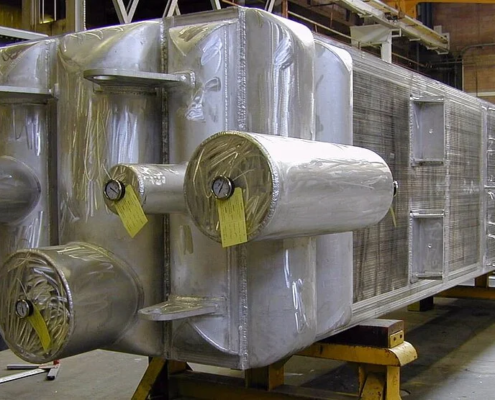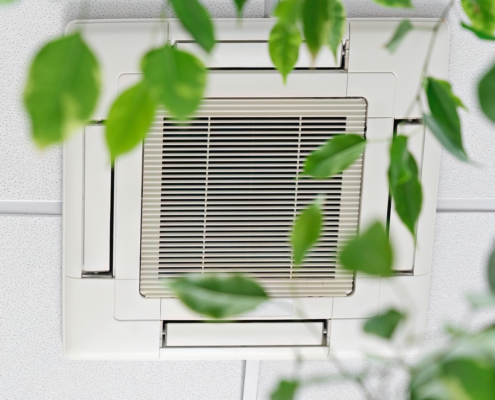Latest news
Designing differently for a sustainable future
23 October 2025/by Ingrid ColleauElectric aviation taking off with DISC-AER
21 October 2025/by Ingrid ColleauTowards a moral code in reindustrialization
16 October 2025/by Ingrid ColleauThermal storage spearhead Wallace Technologies
14 October 2025/by Ingrid ColleauAlhomna Systems promotes solar energy
9 October 2025/by Ingrid ColleauGreenhouse gases: Mirega sets its sights on
18 September 2025/by Ingrid ColleauAll our news

The macro-threats of microarchitectures
Digital, In the NewsProcessor vulnerabilities are no longer limited to the microarchitecural flaws identified in recent years. They now extend to different contexts and directly affect our digital uses. Faced with these increasingly widespread threats, research in security is mobilizing and multiplying approaches to better understand and address them. Maria Mushtaq, researcher at Télécom Paris and organizer of the MICSEC Winter School, sheds light on these developments and the challenges of a field in full transformation.

Renardo lays its cards on the table in embedded electronics
Digital, In the News, IndustryDeveloping an embedded electronic solution in a matter of weeks rather than years: that's the challenge taken up by Renardo, a young start-up incubated at IMT Atlantique. Born out of the industrial and educational experience of its two founders, the start-up offers a modular ecosystem combining hardware and software. The aim is to increase responsiveness and democratize electronic innovation, while meeting industry requirements.

Valérie Forest: from a desire to be useful to global recognition
Health, In the News, PortraitValérie Forest, a professor at Mines Saint-Étienne, was recently recognized as one of the most influential scientists in the world, according to the “Stanford/Elsevier’s Top 2% Scientists” ranking. Originally from Saint-Étienne, she conducts applied research into the biological activity of inhaled particles, while also running the school's Biomedical Engineering Major. Close up on a researcher who just wanted “to be useful”.

Liquefying hydrogen: a challenge to the last grain
In the News, IndustryLiquefaction is a key stage in the use of hydrogen as an energy vector. The HyGen project aims to remove the technological obstacles surrounding this process in the context of decarbonized transport. At Mines Saint-Étienne, two researchers are putting their powder expertise into designing the future cryogenic heat exchangers required for storage.

New wind for indoor air quality
Health, In the NewsA research team from IMT Atlantique has developed a new method for analyzing the microorganisms in indoor air. Unlike traditional methods, this approach facilitates representative sampling over long durations. This is good news for a concern that often takes a back seat.

From 5G to 6G: the unstoppable progress of generations
Digital, In the NewsThrough a series of articles, this I'MTech collection offers various insights to better understand the technical challenges, as well as the issues of optimization and energy efficiency, that accompany the transition from 5G to 6G. Between the explosion of the IoT, the emergence of the metaverse, and the imperative of energy efficiency, we take a look at the future of telecommunications.

5G & 6G: the antennas that shape networks
Digital, In the NewsIn a context of constantly growing needs for data transmission, 5G and 6G networks must comply with increasingly strict technical obligations in terms of flexibility, miniaturization, and energy optimization. Solutions explored by researchers include optimal management of radiation patterns and the development of concrete applications for millimeter wave frequencies. Two projects, YACARI and PIIEC ME/CT, are tackling the technical obstacles to these approaches by combining different antenna technologies.

5G connecting constellations
Digital, In the NewsA space-based solution to connect remote regions is soon to become reality. But using low-orbiting satellites as telecommunications relay stations means certain functionalities of current terrestrial solutions have to be reinvented. Their constant movement is the reason. For the BPI 5G NTN mmWave project, Télécom Paris scientists are tackling this technical challenge, by developing new algorithms and performance models in order to assess the limitations of the system and then optimize it.

Slicing: a MUST for multisectoral communication
Digital, In the NewsIn emergency situations such as a major car crash, proper coordination between the emergency, medical and transport services is vital. Yet these different operators often use compartmentalized communication services which hinder their performance. The NF-MUST project aims to create a dynamic, shared and flexible network architecture to enable seamless communication. It relies on slicing techniques and virtualized networks to meet the demands of different sectors.







